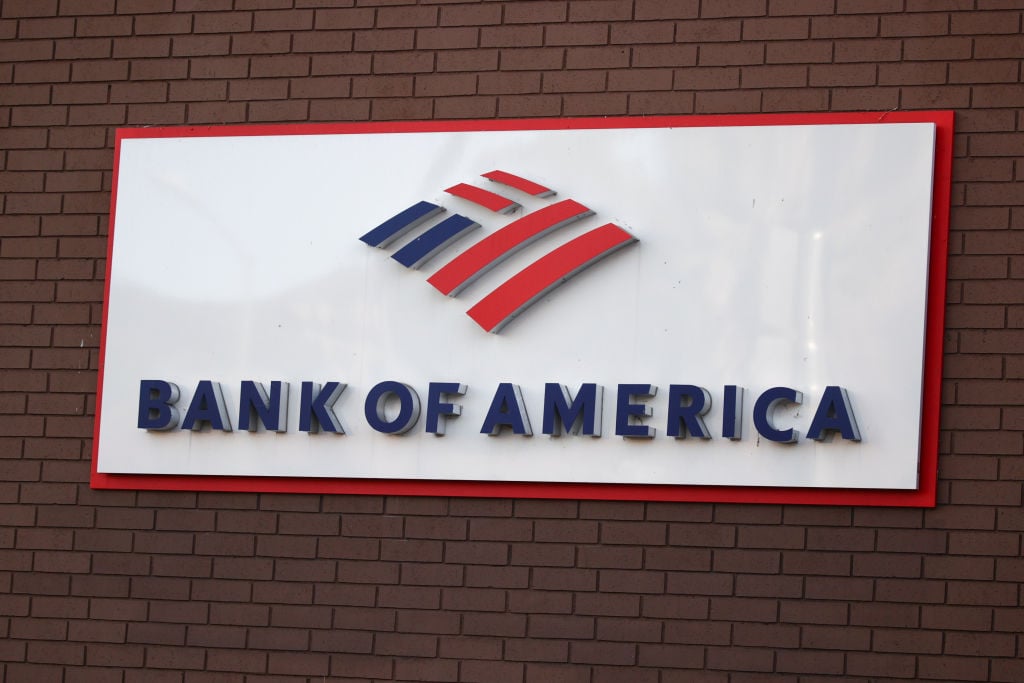Maybe I'm being a bit harsh with that title, but if you've read previous columns of mine on Bank of America (BAC +0.16%) you'll know I'm no fan of the bank as a general investment: More than four years on from the financial crash, I think it remains too big, too diverse, and too unwieldy for average investors -- like myself -- to get their heads around.
And I'm still not convinced the last crisis-related shoe has dropped for the superbank, let alone LIBOR-related fines and/or suits -- the other financial time bombs out there just ticking away, waiting to go off for many of the world's big banks. But CEO Brian Moynihan and company have just managed to impress me with a savvy move that has the potential to be win-win-win scenario for B of A, the U.K., and the Republic of Ireland.
The investment that shall not be named
Financial Times is reporting that B of A will be moving $50 billion of its derivatives business out of Ireland and into MLIB, the London-based subsidiary that came along with Merrill Lynch, which B of A bought in the darkest days of the financial crash.
$50 billion is big chunk of change, especially for a country like Ireland. Having all of those exotic investments there in the Dublin office was making the Irish government nervous: fearful for potential fallout for Irish taxpayers.
After the drubbing the country took from a real-estate crash that rivaled America's, and the years of punishing austerity it's taken to bring the Irish economy back from the dead, the mere mention of the word "derivatives" -- variations of which played a large role in the financial crisis -- is probably enough to send any Irish politician running for the country's lovely green hills.
The U.K. is happy about the move because B of A's base of operations is in London, and regulators wanted that big book of derivatives business physically closer to home, where they could keep a better eye on it.
Celtic Tiger vs. British Bulldog
So that's the win-win part of the story for Ireland and the U.K. What about the win for Bank of America?
B of A kept that $50 billion in derivatives in Dublin for a simple reason: lower corporate income taxes. Remember the Celtic Tiger? Part of the go-go 90s, when seemingly every company on the planet wanted to relocate to Ireland because of the tremendous tax breaks the government was offering? Taxes are still low there , but corporate income taxes have also come down in the U.K., and are scheduled to go lower in April: down to 23%.
In addition, according to Financial Times, there's approximately $8 billion of deferred tax assets waiting for B of A to use in the U.K., which the bank can potentially use to reduce its corporate tax bill further, or possibly even eliminate it.
Howling masses, happy investors
One slight danger with this ingeniously tax-advantageous move is the current hostile mood of the British people and its politicians to transnational corporations and the taxes they pay.
The self-induced, austerity-beset U.K. is hunting left and right for ways to fill government coffers, and has of late turned to breaking down the doors of companies like Starbucks and Goldman Sachs (GS +0.30%) in order to do it. In Goldman's case, it recently had to renounce plans to defer paying out bonuses to its London-based employees because there was such a governmental uproar over it.
Goldman's plan was to pay the bonuses out after April 6, when rates were scheduled to come down. The bank wasn't doing anything illegal or even, in my opinion, unethical in trying to maximize the take-home pay for its bonused employees, but caught a load of flak for it regardless. B of A's reputation is still recovering enough from its egregious financial-crisis misfires: It really doesn't need to take any more hits in that area.
But that's an admittedly small danger, one which is more than offset by the shifting of this derivatives business from Dublin to London. The other smile-inducing aspect of this move is that it's a sign of B of A continuing to streamline its operations post-crisis. Since the superbank's European headquarters is in London, it makes sense to manage this large book of business from there, and for the same reason, U.K. regulators want it there: It's easier to keep an eye on, along with the people managing it.
Maybe if the London Whale had instead been the New York Whale, and the reportedly $100 billion derivatives bet Bruno Iksil placed in the London office had instead been placed in JPMorgan Chase's (JPM +0.88%) New York office, things would have turned out differently for CEO Jamie Dimon and company. Even in this age of digital money and Skype, physical location can still matter.
Way to go, Bank of America, for this smart and savvy move that appears to be a winner for everyone involved. Who knows? I might become a convert to B of A yet.








